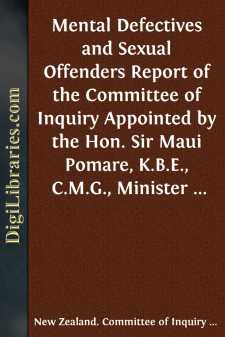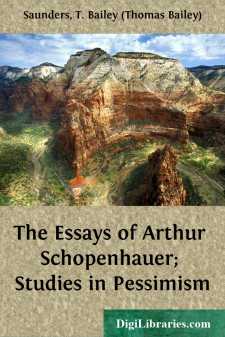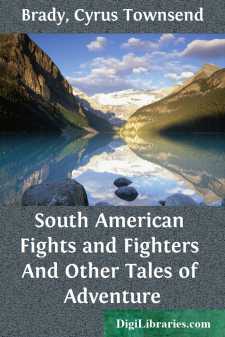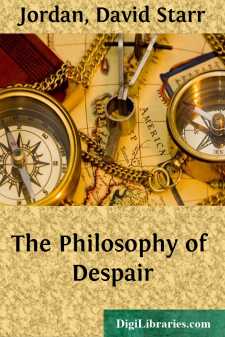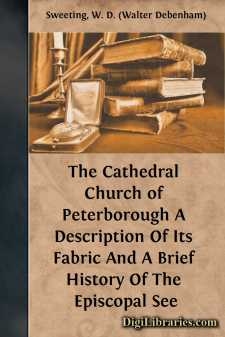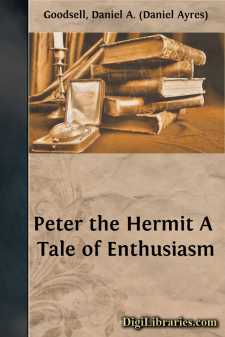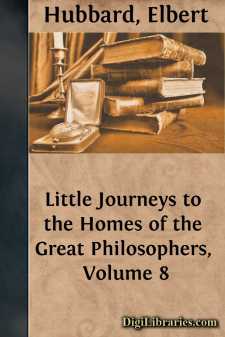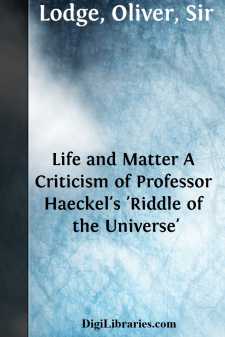Non-Classifiable
- Non-Classifiable 1768
Non-Classifiable Books
Sort by:
by:
George Hodges
A PURITAN BOYHOOD: WANSTEAD CHURCH AND CHIGWELL SCHOOL The mother of William Penn came from Rotterdam, in Holland. She was the daughter of John Jasper, a merchant of that city. The lively Mr. Pepys, who met her in 1664, when William was twenty years of age, describes her as a "fat, short, old Dutchwoman," and says that she was "mighty homely." He records a tattling neighbor's...
more...
Section 1.—Origin and Scope of Inquiry. For a considerable time there has been a growing feeling of anxiety among the public owing to the number of mental defectives becoming a charge upon the State, and also the alarming increase in their numbers through the uncontrolled fecundity of this class. Furthermore, owing to the frequency of sexual offences, many of a most revolting character, there was a...
more...
by:
Selwyn Brinton
n considering the work of one of the greatest of the masters of the Renaissance, we have to go further back than the disputed question as to who was the first teacher of Pietro di Cristofano Vannucci—surnamed by his contemporaries "il Perugino," the Perugian—and to inquire into the more interesting story of his predecessors in that wonderful School of Umbria, on which his art puts, in a...
more...
ON THE SUFFERINGS OF THE WORLD. Unless suffering is the direct and immediate object of life, our existence must entirely fail of its aim. It is absurd to look upon the enormous amount of pain that abounds everywhere in the world, and originates in needs and necessities inseparable from life itself, as serving no purpose at all and the result of mere chance. Each separate misfortune, as it comes, seems,...
more...
I. The Spanish Main One of the commonly misunderstood phrases in the language is "the Spanish Main." To the ordinary individual it suggests the Caribbean Sea. Although Shakespeare in "Othello," makes one of the gentlemen of Cyprus say that he "cannot 'twixt heaven and main descry a sail," and, therefore, with other poets, gives warrant to the application of the word to the...
more...
From Fitzgerald's exquisite version of the Rubáiyát of Omar Khayyám, I take the following quatrains which may serve as a text for what I have to say: So when the angel of the darker DrinkAt last shall find you by the river-brink,And offering you his cup, invite your SoulForth to your lips to quaff, you shall not shrink. Why, if the soul can fling the Dust aside,And naked on the air of Heaven...
more...
CHAPTER I.HISTORY OF THE CATHEDRAL CHURCH OF S. PETER. Until the middle of the nineteenth century, Peterborough remained one of the most unchanged examples in the kingdom of the monastic borough. The place was called into existence by the monastery and was entirely dependent on it. The Abbot was supreme lord, and had his own gaol. He possessed great power over the whole hundred. And even after the See...
more...
PETER THE HERMIT. The Foreground. The great movements called the Crusades followed the leading of universal religious instincts.The Cause of PilgrimagesBelong to all ReligionsThe Impulse of To-day.Pilgrimages and Historic MemoryWherever a great leader has been born, has taught, has suffered, died, or been buried, the feet of his followers have been glad to stand. At such spots religious emotions are...
more...
by:
Elbert Hubbard
SOCRATES I do not think it possible for a better man to be injured by a worse.... To a good man nothing is evil, neither while living nor when dead, nor are his concerns neglected by the gods. —The Republic SOCRATES It was four hundred seventy years before Christ that Socrates was born. He never wrote a book, never made a formal address, held no public office, wrote no letters, yet his words have...
more...
by:
Oliver Lodge
CHAPTER I MONISM In his recent Presidential Address before the British Association, at Cambridge, Mr Balfour rather emphasised the existence and even the desirability of a barrier between Science and Philosophy which recent advances have tended to minimise though never to obliterate. He appeared to hint that it is best for scientific men not to attempt to philosophise, but to restrict themselves to...
more...



